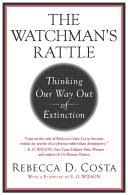Novelty is Good for the Brain
There is unanimous agreement among neuroscientists and psychologists that the human brain operates best when it is regularly subjected to new challenges. We have recently discovered that the brain benefits from a broad variety of problem-solving activities such as crossword puzzles and Sudoku. There also appear to be benefits when we mix these activities up: doing crosswords puzzles for a while and then switching over to Sudoku, and later, back again. The same goes for changing daily routines: trying a new route to work, a new sport, or a new hobby. Whenever we concentrate on learning somethinganything—new, the brain activates neurotransmitters.
It doesn't matter what the new activity is—whether we are learning to bake a pie from scratch or tackling calculus —in each case the brain requires neurotransmitters to carry and store new information. This is because whenever we learn something new we are burning new biological "circuits" in the brain that challenge the old circuits we have relied on over and over and over again. Suddenly, we are creating more options and more pathways for the brain to select from.
Over time, searching for those new circuits becomes the new "normal"; the brain gets accustomed to creating new circuits for its own benefit. Successful learning has a certain momentum associated with it: The more the brain learns, the more it wants to learn. The desire to learn becomes habitual.
[...]
Mike Logan, an education counselor at Illinois State University, offers some easy suggestions:
If you're right-handed, use your left hand for daily activities (or vice versa). Start with brushing your teeth left-handed, and practice until you have perfected it. Then try to build your way up to more complex tasks, such as eating. Changing simple activities drives our brain to make positive changes. Think of millions of neurons learning new tricks as you finally establish better control of that other hand!
Notes:
The more the brain experiences novel situations, the more it grows new connections, soon it becomes good at growing new connections.
Folksonomies: brain health novelty cognitive health
Taxonomies:
/hobbies and interests/games/board games and puzzles (0.614685)
/technology and computing/electronic components (0.529119)
/food and drink/healthy eating (0.446814)
Keywords:
brain (0.928343 (positive:0.160747)), new connections (0.815741 (positive:0.543031)), Illinois State University (0.794273 (neutral:0.000000)), new circuits (0.754893 (positive:0.611747)), unanimous agreement (0.649263 (negative:-0.675265)), brain experiences (0.643819 (positive:0.708412)), new challenges (0.642480 (negative:-0.675265)), human brain (0.639032 (negative:-0.675265)), old circuits (0.631808 (negative:-0.345577)), new sport (0.618372 (positive:0.223383)), new hobby (0.613008 (neutral:0.000000)), new activity (0.612573 (negative:-0.466010)), new route (0.612269 (negative:-0.259836)), new information (0.610197 (negative:-0.466010)), broad variety (0.609591 (positive:0.518645)), brain benefits (0.606430 (positive:0.518645)), problem-solving activities (0.604068 (positive:0.518645)), crossword puzzles (0.599578 (positive:0.518645)), crosswords puzzles (0.599555 (neutral:0.000000)), daily routines (0.591129 (neutral:0.000000)), new tricks (0.587427 (positive:0.206318)), certain momentum (0.582343 (neutral:0.000000)), Mike Logan (0.574312 (neutral:0.000000)), education counselor (0.574219 (neutral:0.000000)), positive changes (0.574145 (positive:0.706734)), better control (0.571285 (positive:0.206318)), easy suggestions (0.566742 (positive:0.565407)), Successful learning (0.563742 (neutral:0.000000)), complex tasks (0.563627 (positive:0.544526)), simple activities (0.562538 (positive:0.706734))
Entities:
Mike Logan:Person (0.700181 (neutral:0.000000)), Illinois State University:Organization (0.665653 (neutral:0.000000))
Concepts:
Neuron (0.966972): dbpedia | freebase | opencyc
Nervous system (0.878473): dbpedia | freebase | opencyc
Brain (0.825431): dbpedia | freebase | opencyc
Human brain (0.813299): dbpedia | freebase
Psychology (0.804504): dbpedia | freebase | opencyc
Crossword (0.769784): dbpedia | freebase
Left-handedness (0.714526): dbpedia
Cerebellum (0.708877): dbpedia | freebase | opencyc






